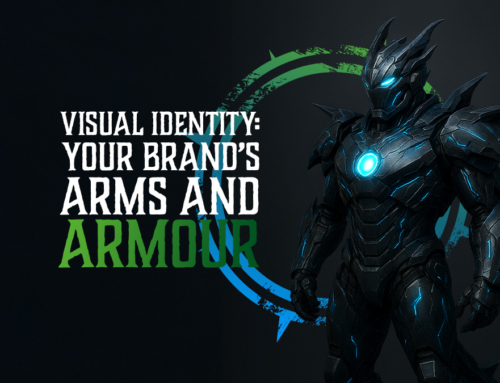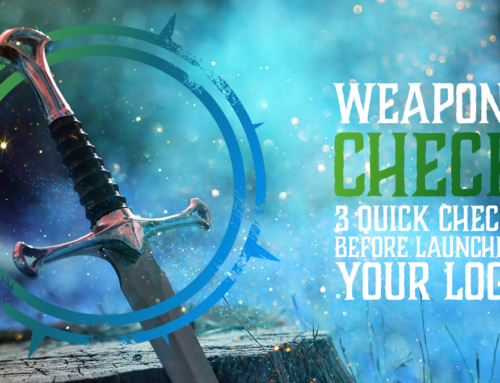Have you ever been in a shieldwall?
I have.
There’s something people don’t tell you when you’re standing in a line of clattering armour and bracing for an enemy charge. Just how easy it would be to turn and run. But you also don’t need to be told what happens if you do: the entire line breaks down.
If a section of your line is weak, it’ll break everything else.
There’s a lot of similarity here to your brand. Specifically, your values. Brand values are the very heartbeat of your brand. They are the non-negotiables, even more so than the logo, tagline or even the product.
Values are the beliefs that shape your decisions, build your culture and guide your business. They are both ‘why’ and ‘how’ you act.
Brand values are your shieldwall. They’re the line in the sand that you will not cross. An unyielding wall that separates what you stand for from what you won’t tolerate.
And most importantly, they show this to your audience.
Understanding Brand Values
Here’s the first thing to understand about brand values. They aren’t supposed to be ‘corporate niceties’. A few words randomly shaken from your mission statement. They’re supposed to be the hard truths at the core of your business. They’re core principles and beliefs that your company lives and dies by.
These are your internal compass, guiding your actions and behaviour. They don’t just affect your visual and messaging choices, but also impact everything from hiring to customer interactions.
Your values are the soul of your brand. Which is why fluff like ‘professional’, ‘trusted’ or ‘quality’ is garbage. These are the baseline of what a business should be. Your brand values are deeper than that. They influence brand perception and build emotional connections.
Brand Values – The Shieldwall in your business
Let’s return to our shieldwall.
In a shieldwall, warriors stand shoulder-to-shoulder, holding their ground with shields locked together. Each warrior in the wall protects the next.
It’s not thrown together in a hurry. It’s a tried and tested formation that requires training – it’s deliberate. This is how a line that can’t be crossed is created.
And that’s what your brand values need to be – deliberate. They can’t be picked out of thin air in five minutes. They are the line that won’t be crossed; the principles you will defend no matter the cost.
When you’re tempted to take shortcuts or fold under pressure, your brand values stand firm. They remind you of who you are and help you stand strong.
Key Components of Brand Values
Not every value is created equal. Some sound impressive, but are ultimately hollow. Others look great on paper but fall apart with the slightest pressure.
A great brand value isn’t just a word; it’s a belief you won’t budge from. It’s something you can act upon and defend when under pressure.
Here are some key components of great brand values.
1 – Actionable, not Aspirational
A great value should guide your behaviour, not just sound virtuous. ‘Trust’ is meaningless if it doesn’t provide a path to clear actions. Ask yourself, ‘How does this look in action?’. If you can’t answer, it’s not a value, it’s a wish.
How to test the value: Could someone new to the business make decisions for the brand based on the value alone?
2 – Specific to You
Generic values create generic brands. If you and another business have identical values, you’ll blend into one another. A great value reflects your business and your edge. It’s (and I’m sorry for using this word) authentic. It shouldn’t feel like it fits as well with any other brand.
How to test the value: Can your customers recognise the value in how you operate?
3 – Proven in Battle
Great values are proven, not advertised. They should already be showing up in how you work. The strongest brand values come from what you do, not a brainstorming session. Document what’s already true about your business and dig deeper into it. Your reviews are a great source of inspiration for this – they’ll tell you what aspects of your work your audience loves.
How to test the value: Could customers recognise the value in how you deliver?
4 – Balanced between real and ideal
Good values should challenge you, but shouldn’t be so idealistic that they seem fake. They should be a standard you’re proud to live up to. A great value is based in reality, but bold enough to challenge your brand to grow.
How to test the value: Does the value push you to improve, without being impossible to sustain?
5 – Clear and Communicable
If you can’t explain your value in a sentence, it’s too vague. If your team has ten different interpretations of the value, it’s too vague. Clarity is key. A strong brand value is easy to remember and communicate.
How to test the value: Could someone explain the value to a customer in under 30 seconds?
The Impact of Brand Values
There’s a reason values need to be more than nice-sounding words. When they’re clear, practised and honest, they have a positive impact on your brand.
Great brand values influence customer trust and loyalty. Your brand is seen as more than a product when you have strong values. Customers see your purpose through your values and will make choices based on this. When they see values that match theirs, you create loyalty that money can’t buy.
Brand values also create a difference internally. Your team aligns when good values are in place. Employees advocate for the business, and the culture grows organically. People know why they show up and work all the better for it. This also works for partners. Collaboration happens when businesses have aligned values, boosting the fortunes of both.
Values also play a role in differentiating you from your competition. When others are inconsistent, vague and reactive, clarity becomes a competitive edge. A brand with clearly defined values knows what it is and can make better decisions.
Establishing Clear Brand Values
At this stage, you might be wondering about your values. Establishing clear brand values can feel overwhelming, especially when it’s easier to pick a few nice words out of a hat and call it a day.
But a shieldwall isn’t built by accident, and neither should your values. Here’s how to uncover brand values with intention:
- Dig deep: Don’t be content with surface-level niceties. Go deeper and ask why these beliefs are important. What do you believe in? What lines won’t you ever cross (even for a massive pay-day)? What do you fight for (or against)?
- Involve your brothers (and sisters) in arms: Finding brand values is easier with help. Get input from your team, partners and even clients. Your values should reflect your lived experience. Talk to the people who know you best and ask what they see in you.
- Avoid the generic: ‘Trust’ is the baseline for all businesses. What does it look like in your world? Why is it important? The deeper you look, the easier it becomes to be different.
- Document and communicate: Your brand values should be woven into the fabric of your identity. They live everywhere in your brand messaging, tone, marketing, and internal documents. Let them live through your brand.
Most importantly, don’t be afraid to take time to build them. These are important and shouldn’t be thrown together as part of a box-ticking exercise. The more fitting they are, the more benefit they’ll bring to the business.
Maintaining Brand Values Over Time
The truest test of brand values is how they are maintained. If you start off following a value but drop it at the first sign of trouble, they were never values in the first place.
Firstly, consistency is key. Strong values are hard to maintain if your brand shifts randomly. Don’t just talk about your values, make them evident in your actions. Every action your brand takes should reflect your values, from hiring and choosing partners to designing new products.
Adapt your brand without compromising. Evolution is a natural part of business, but your core must hold firm. It’s important to review your values regularly. Update the language where needed, but don’t dilute their essence.
Conclusion – Brand Values that act as your Shieldwall
Your brand values aren’t a motivational poster to stick on the wall. They aren’t a box-ticking exercise or a ‘nice to have’. They’re a core part of your brand identity. They’re a shieldwall for your brand, providing protection, promise, and power.
Distraction is rife out there, so standing for something is a major advantage. When you define (and defend) your values, you create meaning for people to rally behind.
Your values are the areas you won’t give ground on. Weak values make your brand equally weak.
A brand is only as strong as the values it refuses to compromise.
Struggling to define your core values? My Brand Adventurer workshop is designed to help you uncover what really matters in your brand. Book a consultation here.





